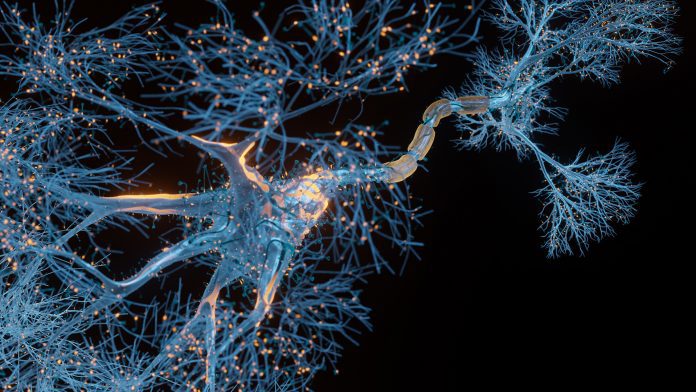
New research finds that an intermittent fasting diet changes gut bacteria activity in mice, increasing the ability to recover from nerve damage.
Imperial College London researchers observed how an intermittent fasting diet caused the gut bacteria to increase the production of 3-Indolepropionic acid (IPA) metabolites; these are required to heal nerve fibres called axons.
“There is currently no treatment for people with nerve damage beyond surgical reconstruction, which is only effective in a small percentage of cases. This prompted us to investigate whether lifestyle changes could aid recovery,” said study author Professor Simone Di Giovanni from Imperial’s Department of Brain Sciences.
The new research is published in Nature; this study is the first to analyse if an intermittent fasting diet can repair nerve damage.
Could an intermittent fasting diet plan be the future of nerve damage treatment?
The study assessed nerve regeneration of mice where the sciatic nerve, which runs down the spine to the leg, was crushed.
In a group of mice, half intermittently fasted (eating as much as they liked, followed by restricted eating on alternate days), and the other half consumed whatever they wanted. The researchers examined the two groups for ten days or 30 days before the mice had their operation, and the team monitored recovery for the following 24 to 72 hours.
The researchers found the length of regrown axons were 50% greater in mice following an intermittent fasting diet.
Professor Di Giovanni said, “I think the power of this is that it opens up a whole new field where we have to wonder: is this the tip of an iceberg? Are there going to be other bacteria or bacteria metabolites that can promote repair?”
The role of IPA in nerve regeneration
The researchers set out to answer why fasting leads to nerve regeneration and found that there were significantly higher levels of specific metabolites, including IPA, in the blood of the mice who fasted.
To confirm if IPA led to nerve repair, the mice were treated with antibiotics to clean their guts of bacteria. The mice were administered genetically modified strains of Clostridium sporogenesis that could or could not produce IPA.
“When IPA cannot be produced by these bacteria and it was almost absent in the serum, regeneration was impaired. This suggests that the IPA generated by these bacteria can heal and regenerate damaged nerves,” Professor Di Giovanni said.
The team noticed that when IPA was administered orally after sciatic nerve injury, the regeneration of nerves and recovery improved around two and three weeks after injury.
Looking towards the future, the researchers will test this mechanism for spinal cord injuries in mice and test whether administering IPA more frequently maximises its effectiveness.
“One of our goals now is to systematically investigate the role of bacteria metabolite therapy,” Professor Di Giovanni said.
More studies will be needed to understand if IPA increases after fasting in humans and the efficacy of IPA and intermittent fasting as a potential treatment in people.









